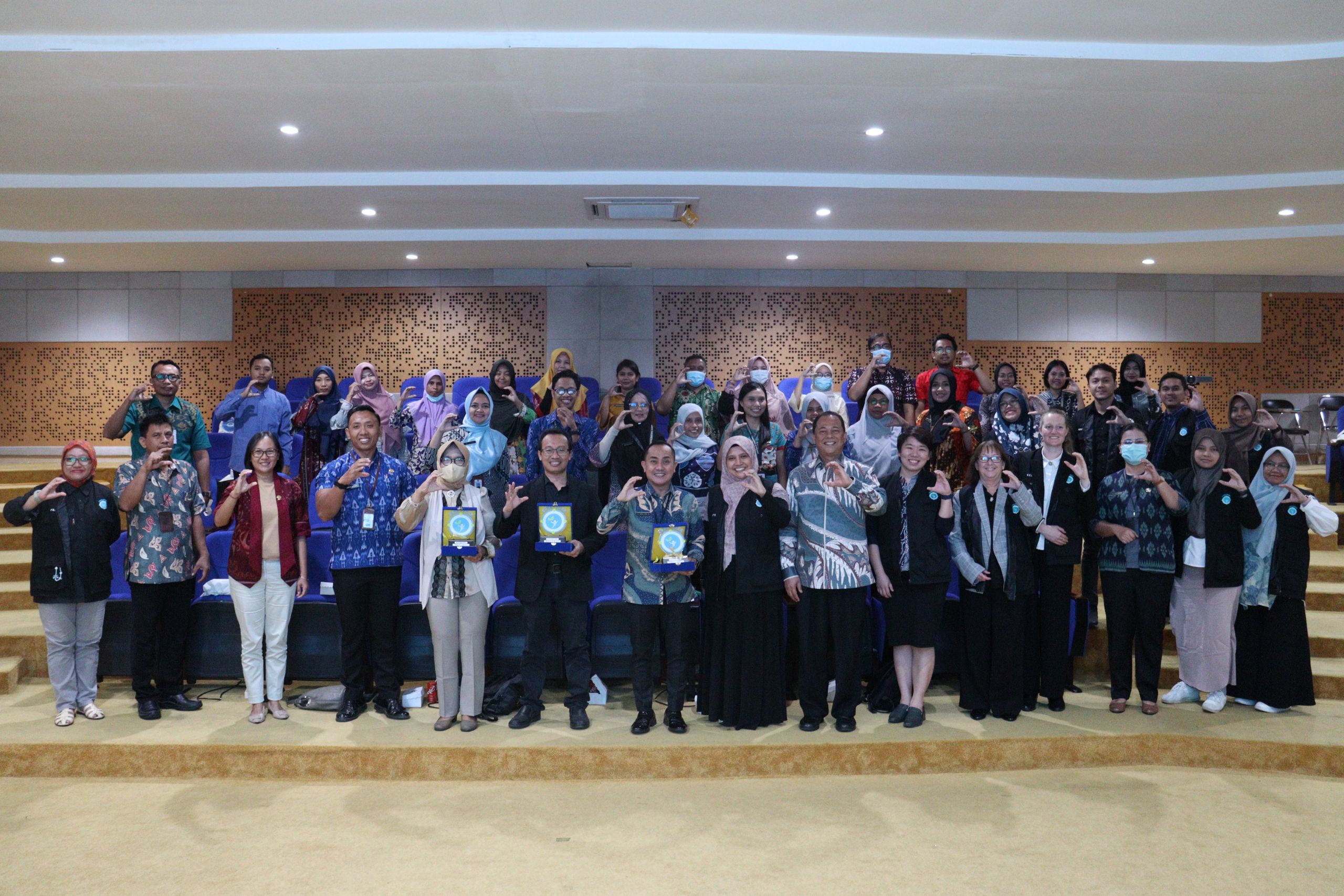Healthcare System Ready for Global Change: CORE-STEP Dashboard Officially Launched

Mataram, University of Mataram – Syiah Kuala University (USK) and Griffith University, Australia in collaboration with University of Mataram (Unram), Pattimura University (Unpatti), Ministry of Health, Local Governments for Sustainability Indonesia (ICLEI Indonesia), CARI!, International Network of Health Promoting Hospitals and Health Services proudly officially launched the CORE-STEP Dashboard at the Dr. Yunita Sabrina Auditorium, Faculty of Medicine and Health Sciences (FKIK Unram) on Thursday (20/6).
The CORE-STEP Dashboard is an innovative knowledge-based solution for an inclusive and climate change-ready primary healthcare system. This digital platform presents climate change, disaster and adaptation data visualizations developed to support and strengthen the capacity of Puskesmas in providing equitable services in the face of climate change impacts.
Prof. Dr. Sitti Hilyana, M.Si. in her speech as well as opening the event revealed that NTB, especially Unram, is very appropriate to work together and collaborate considering that this research is an important part of dealing with climate change which has become an international issue.
“NTB in this case, especially Unram, is very suitable to work together and collaborate. NTB has hundreds of small islands which is why our Faculty of Medicine has branding as Islands Medicine. There are about five hundred and thirty small islands and two large islands, Lombok Island and Sumbawa Island, “said Prof. Nana.
Prof. Nana further said that currently there are many diseases that arise due to climate change and almost sixty percent of the income of island communities is allocated for clean water so that when the issue of water and its relation to climate change, poverty is also close at hand, so it becomes very crucial that we talk about climate change from a health perspective.
Dr. Rina Suryani Oktari, S.Kep., M.Si as CORE-STEP Indonesia Project Coordinator in her speech said that this program involves stakeholders from various fields including government agencies, non-governmental organizations (NGOs), and the community.
“We want to get input related to how health services should be ready to face climate change and be more inclusive in providing health services,” said Dr. Okta.
Through this opportunity Dr. Okta also expressed his gratitude to Unram and Unpatti and asked for full support in the future and hoped that this was the beginning of a better way to improve the health sector strategy in the face of climate change.
Dr. Connie Cai Ru Gan as the Australian CORE-STEP Project Coordinator in her speech said that this project is about climate change and is a much more complex problem. This project tries to do something different, trying to make the world more beautiful, better, and safer for everyone. Dr. Connie also expressed her high appreciation to all parties involved in this project.
“The KONEKSI project is about connections and I want to highlight three connections in our journey together. At the beginning of this project we looked at three cities and tried to involve as many people as possible especially in the health sector and people in the communities we serve. We saw a lot of health centers and offices, had a lot of discussions and dialogues so we really appreciate everyone for the time they gave us. We connect people through sharing knowledge and sharing sessions that we have every month and not only academic experts but also experts in policy as well as community advocates and more than six hundred people are involved,” said Dr. Connie.
Dr. Connie further explained that this project also opened the eyes of people in Australia that what we can achieve in Indonesia can also be learned so there were many lessons learned during this project.
The CORE-STEP dashboard presents statistics and analysis that can be categorized by area level (city, sub-district, and village) and time unit (per year) for Banda Aceh, Mataram, and Ambon. Each category is depicted in several types of descriptive displays namely bar charts, pie-charts, time series graphs, geographical maps to facilitate analysis and evaluation.
The CORE-STEP dashboard is intended for users who have an interest in climate change and health issues ranging from agencies, institutions, local governments, philanthropic community organizations, business people, academics, and public in general.
